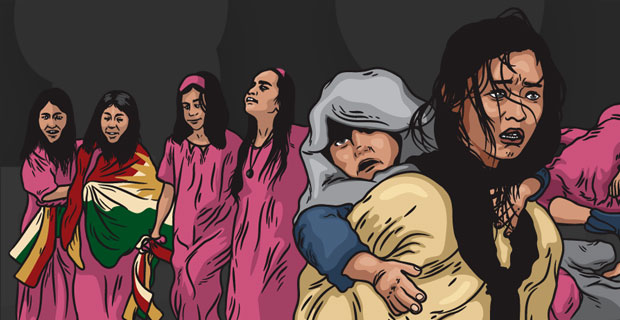Kurdish Political engagement and online activism
We have spoken about the plight and struggles of Kurdish people for decades. Numerous academic literature has been published, reports announced, and condemnations expressed of the horrific ordeal that many Kurdish people have been subjected to historically. Some of the horrendous historical accounts of Kurdish history includes (but not limited to) Kurdish women committing suicide in fear of being raped by Turkish soldiers during the Dersim massacre, to the banning of Kurdish music and culture that led to the exiling of Kurdish singers. While literature on the history of Kurdish people is limited, and embarrassingly few given that Kurds are the largest transnational stateless ethnic group because of the censorship Kurdish academics have faced by repressive regimes in Middle east.
What’s important is that we move on, not from history, but move towards embracing a new era where social media has become a tool of policy change, and where the media can make a government crumble down to the demands of people. Engaging with the media is important because politicians are increasingly responsive to what the media is saying, and even governmental institutions monitor what is being said on social media and within newspapers as a means of analysing public opinion. Consequently, engaging with media outlets becomes crucial in raising awareness about Kurdish rights, and scrutinising respective governments for their backward policies towards Kurdish people (case in point: Iranian executions of Kurdish activists).
The mainstream media outlets could potentially shape public policy, especially when pressure is exerted on the respective government in question because they are forced into making a statement or coming up with a strategy to change how the public perceive them. The equation is simple (1) Media attention on a topic leads to (2) Governmental attention on a topic (3) which consequently leads to shaping public opinion. And since all governments want to be re-elected, they want to make sure that they are part of the discourse within the media, in hope of dominating what is being circulated, and eventually shaping public opinion in their favour.
Kurdish people don’t have to dream of a utopian land where they are all united to actively engage with media outlets on social media, but they simply have to take the initiative towards engagement. Practical examples include responding to depictions of Kurdish people falsely, and engaging with popular political columnists to shape their readers opinions. Instead of reading an article on e.g. Turkish news agency, you can respond to it, whether directly to the author (using comments) or to the website through email, tweets or Facebook. Ultimately what Kurdish people should be aiming to do, is create responsible media agencies that report on Kurdish people, so that fairer and better representation is given.
Although media attention is hard to sustain, and news changes by the minute, what can be consistent is our ability to hold journalists and news agencies responsible for their representation of Kurdish people. And with that comes monitoring of news sites, highlighting their bias, and ensuring that people know about any discriminatory tone which is perpetuated by a news agency. You can directly help AKR be at the forefront of holding news agencies accountable by bringing articles (and websites) that are discriminatory towards Kurdish people to our attention.

Comments are closed.